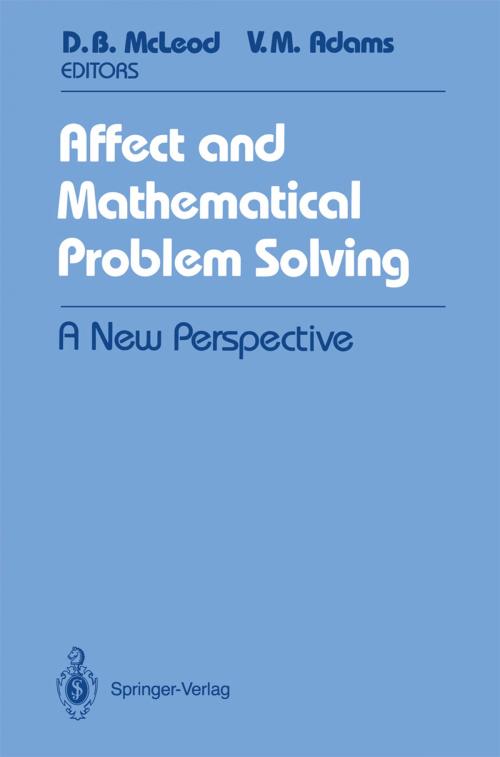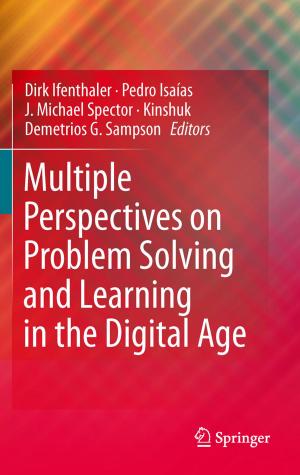Affect and Mathematical Problem Solving
A New Perspective
Nonfiction, Science & Nature, Mathematics, Applied, Health & Well Being, Psychology, Cognitive Psychology, Science| Author: | ISBN: | 9781461236146 | |
| Publisher: | Springer New York | Publication: | December 6, 2012 |
| Imprint: | Springer | Language: | English |
| Author: | |
| ISBN: | 9781461236146 |
| Publisher: | Springer New York |
| Publication: | December 6, 2012 |
| Imprint: | Springer |
| Language: | English |
Research on cognitive aspects of mathematical problem solving has made great progress in recent years, but the relationship of affective factors to problem-solving performance has been a neglected research area. The purpose of Affect and Mathematical Problem Solving: A New Perspective is to show how the theories and methods of cognitive science can be extended to include the role of affect in mathematical problem solving. The book presents Mandler's theory of emotion and explores its implications for the learning and teaching of mathematical problem solving. Also, leading researchers from mathematics, education, and psychology report how they have integrated affect into their own cognitive research. The studies focus on metacognitive processes, aesthetic influences on expert problem solvers, teacher decision-making, technology and teaching problem solving, and beliefs about mathematics. The results suggest how emotional factors like anxiety, frustration, joy, and satisfaction can help or hinder performance in problem solving.
Research on cognitive aspects of mathematical problem solving has made great progress in recent years, but the relationship of affective factors to problem-solving performance has been a neglected research area. The purpose of Affect and Mathematical Problem Solving: A New Perspective is to show how the theories and methods of cognitive science can be extended to include the role of affect in mathematical problem solving. The book presents Mandler's theory of emotion and explores its implications for the learning and teaching of mathematical problem solving. Also, leading researchers from mathematics, education, and psychology report how they have integrated affect into their own cognitive research. The studies focus on metacognitive processes, aesthetic influences on expert problem solvers, teacher decision-making, technology and teaching problem solving, and beliefs about mathematics. The results suggest how emotional factors like anxiety, frustration, joy, and satisfaction can help or hinder performance in problem solving.















